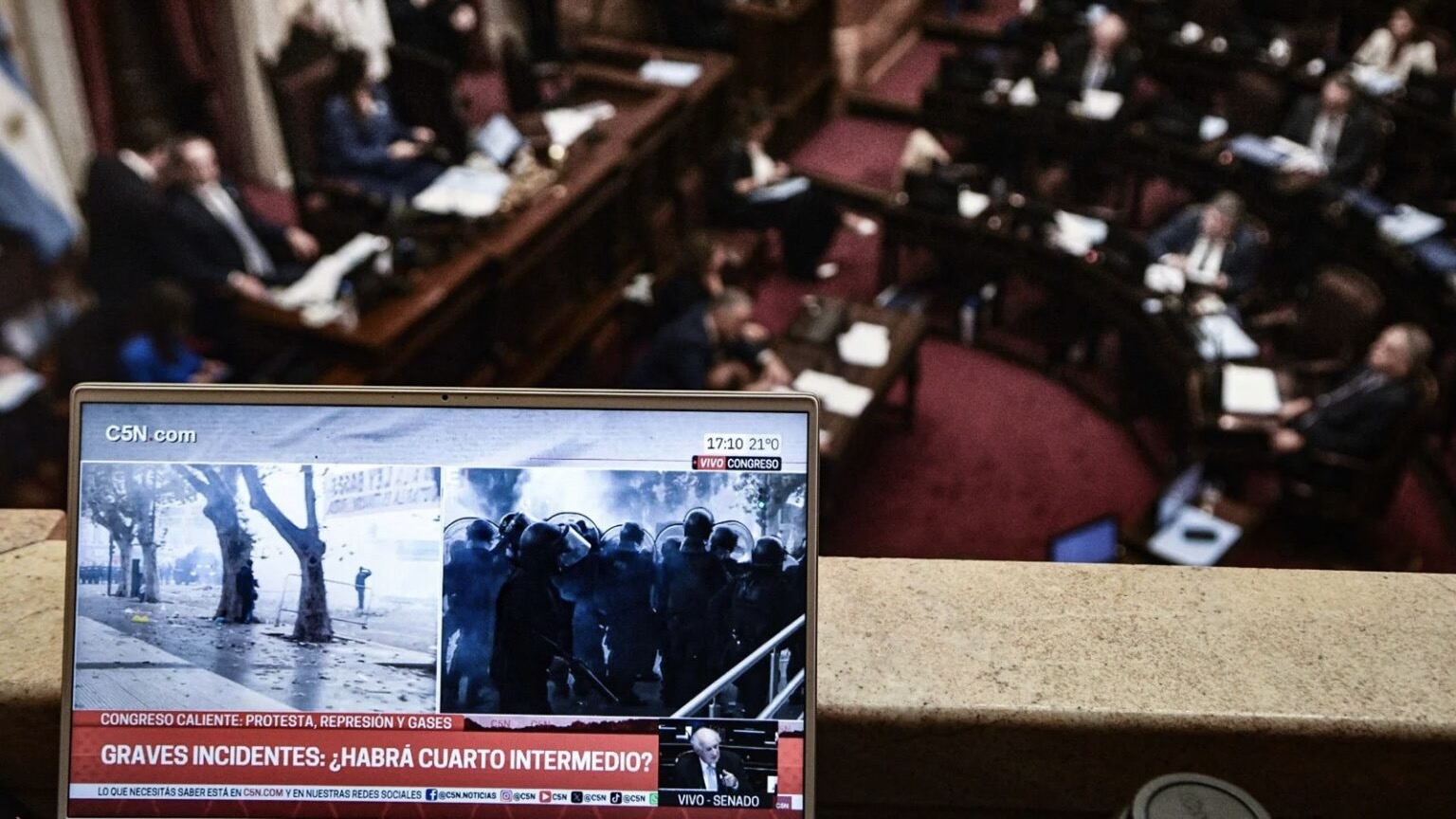After mass mobilizations by grassroots organizations and trade unions on June 12 against the passing of Milei’s Omnibus Law, the Senate approved a reduced version of the law. The mass mobilizations in the capital Buenos Aires and cities across Argentina, were violently repressed by police.
The Senate approval came at 11 pm Wednesday, after 17 hours of debate. The act was stuck in a tie, with 36 votes in favor and 36 against, until Milei’s Vice President, Victoria Villarruel, cast the tie-breaking vote. After all was said and done, the Omnibus Law retained a little more than 200 articles from its original 660. Now the text must return to the Chamber of Deputies.
First draft and failure
In December 2023, Javier Milei’s government sent the Argentine Congress the draft Omnibus Law, which he called Bases and Starting Points for the Freedom of Argentines.
In its original version, it contained more than 660 articles that were later reduced to about half, in an attempt by Milei’s government to get the package of laws approved. However, in February it faced its first setback in the Chamber of Deputies and underwent further modifications. In April, the Chamber of Deputies approved the revised draft. A month and a half later, it was debated by the Senate which approved a modified version and sent it back to the Chamber of Deputies for a second review.
Debate in the Senate leads to modifications
Bartolomé Abdala, the senator from Milei’s Liberty Advances party and provisional president of the Senate, opened Wednesday’s session announcing new modifications to the law.
The main changes introduced by the Senate were the reduction of the number of companies to be privatized—Public Radio and Television, Aerolíneas Argentinas and the Argentine Post Office were excluded from the list—as well as the elimination of the pension chapter that eliminated the retirement moratorium and cuts in the scope of the Investment Incentive Regime (RIGI). The RIGI will be reduced to the following sectors: Mining, Energy, Technology, Agroforestry and infrastructure. Another important change was in Article 196 regarding foreign currency exchange in trade.
Finally, the ruling party agreed to incorporate the prohibition on dissolving government agencies related to culture. The National Atomic Energy Commission was also recognized as an entity that cannot be intervened in.
Another defeat in the Fiscal Package
After the Omnibus Law was passed, the Senate moved to the Fiscal Package. Late in the morning, the Senate approved the changes to the fiscal package and sent it back to the Chamber of Deputies for a second review.
But during the vote by article, the ruling party received two major defeats: the articles on the reactivation of the Income Tax and the Personal Assets were rejected, so the possibility of reverting these issues will remain in the hands of the Chamber of Deputies.
Now the government can only reverse this setback if the Chamber of Deputies insists on the original sanction of the bill with the same majority, thus rejecting these two chapters.
This article was based on reports from ARG Medios and Página 12.





